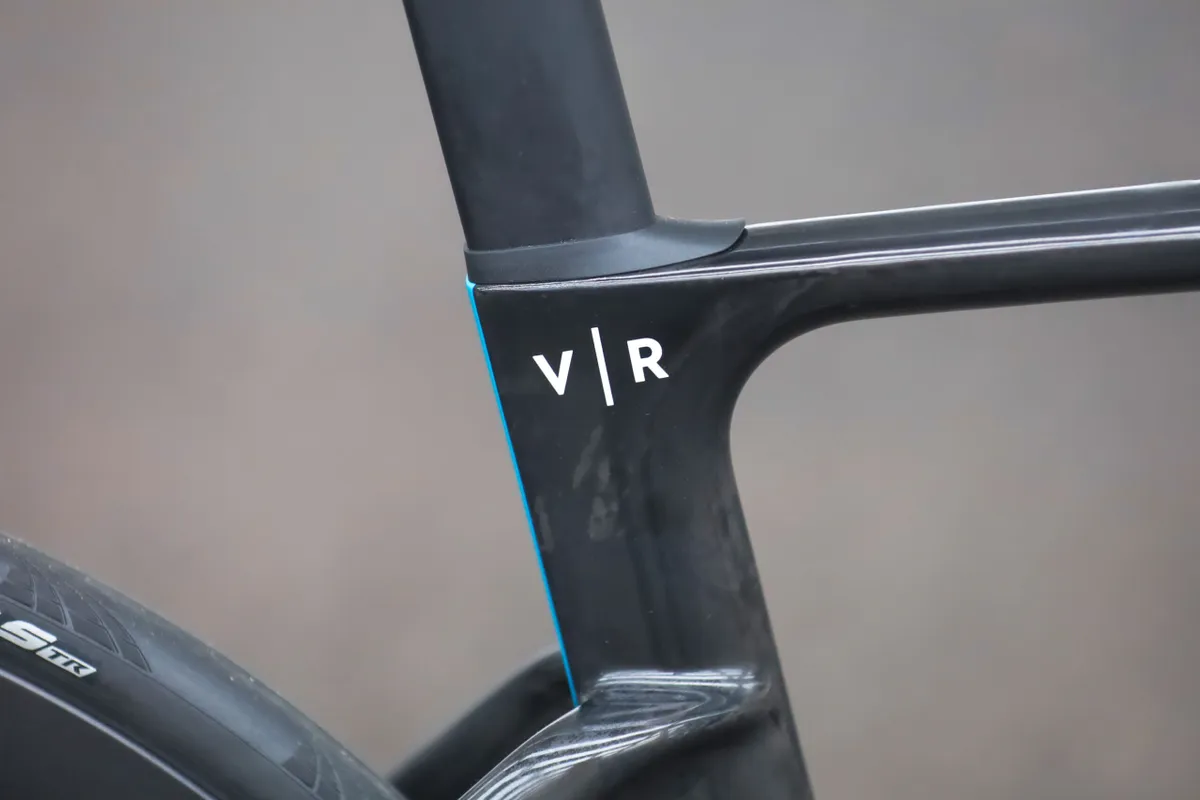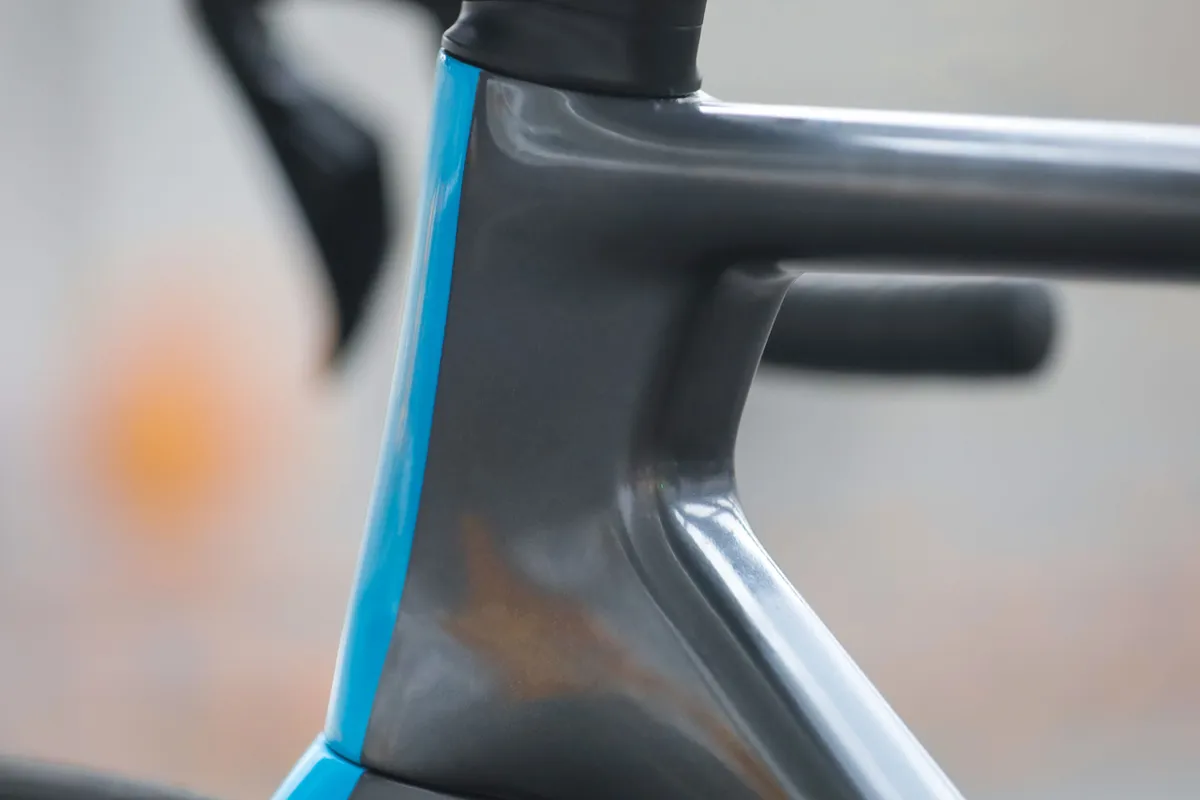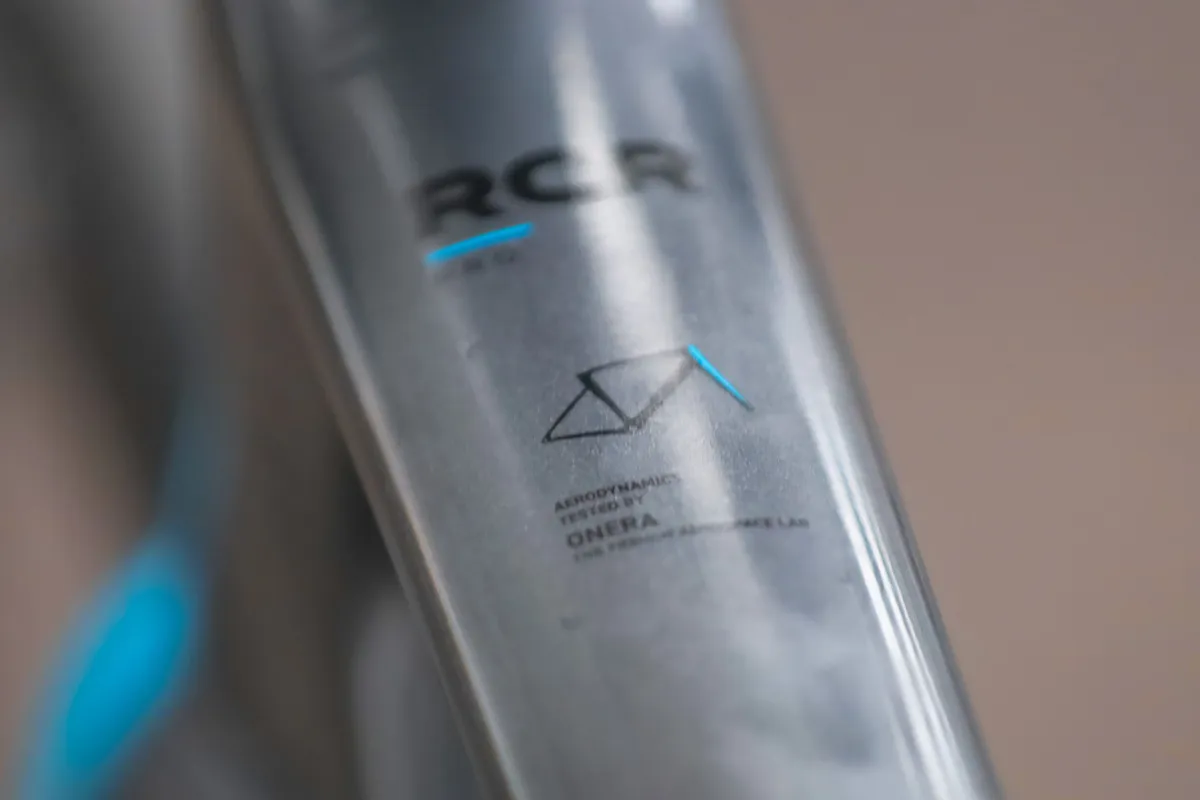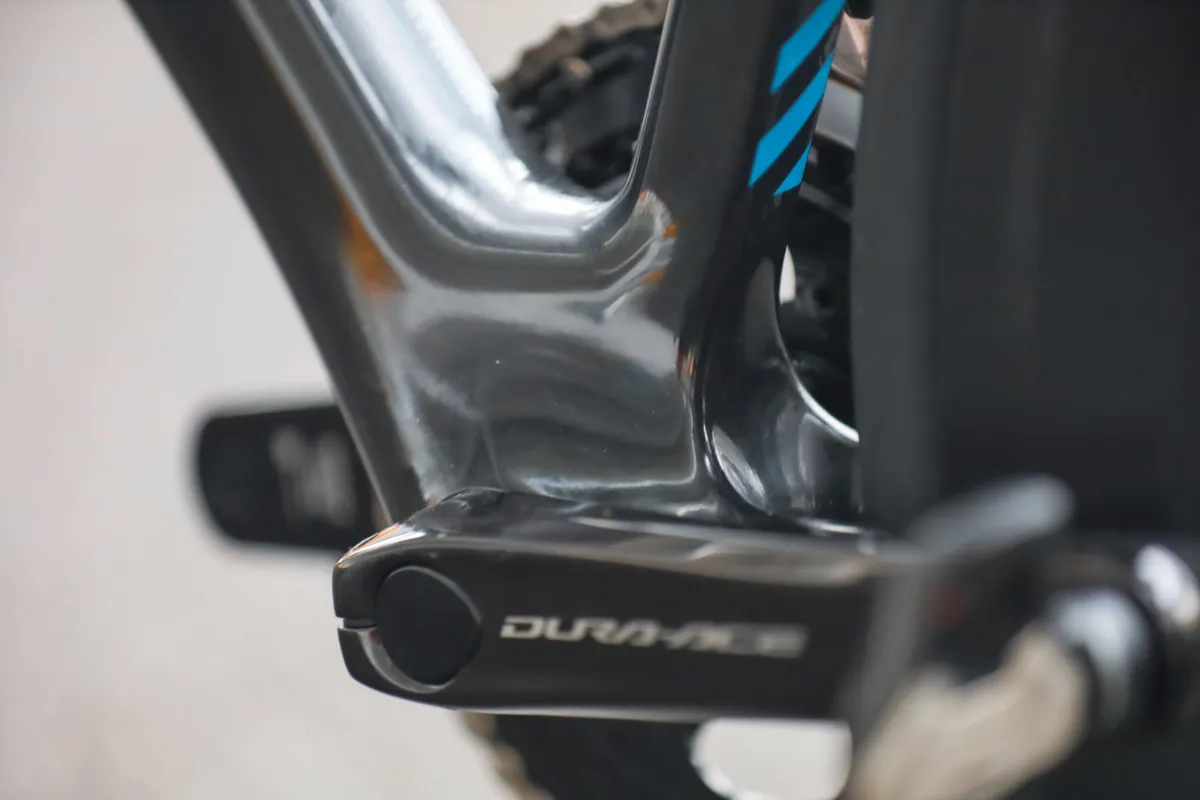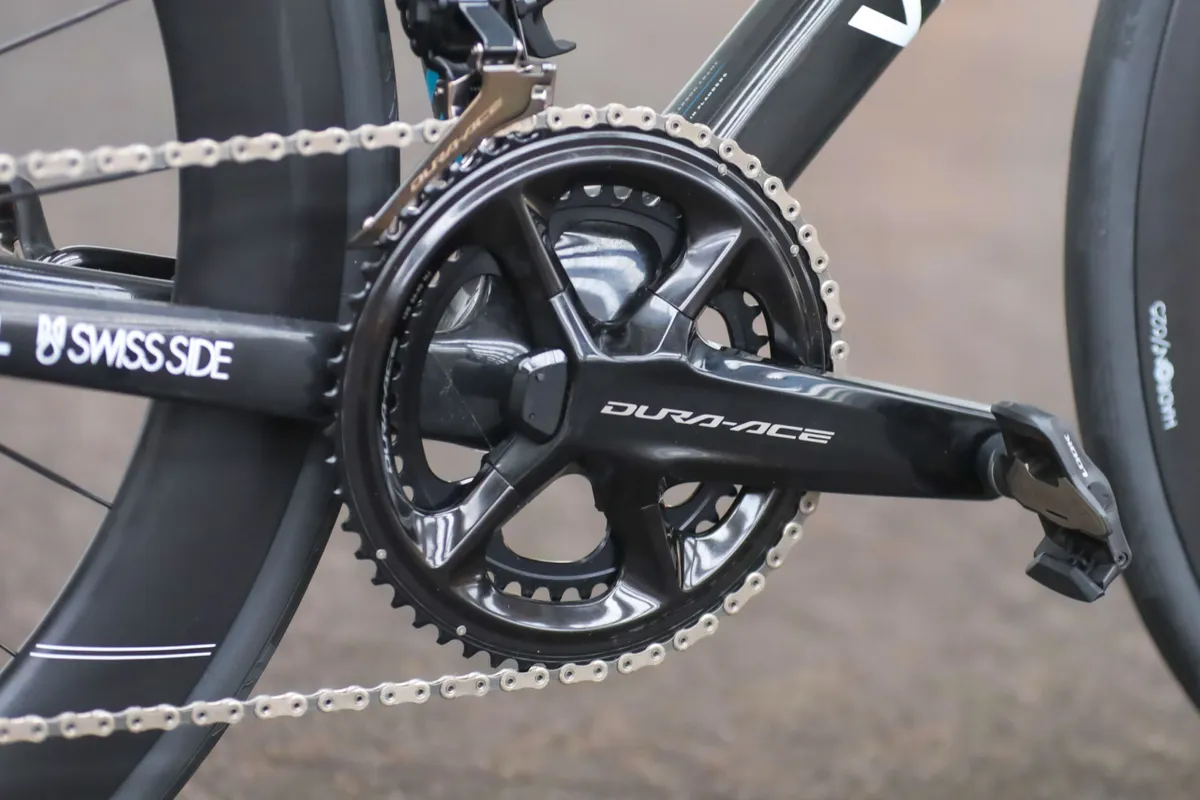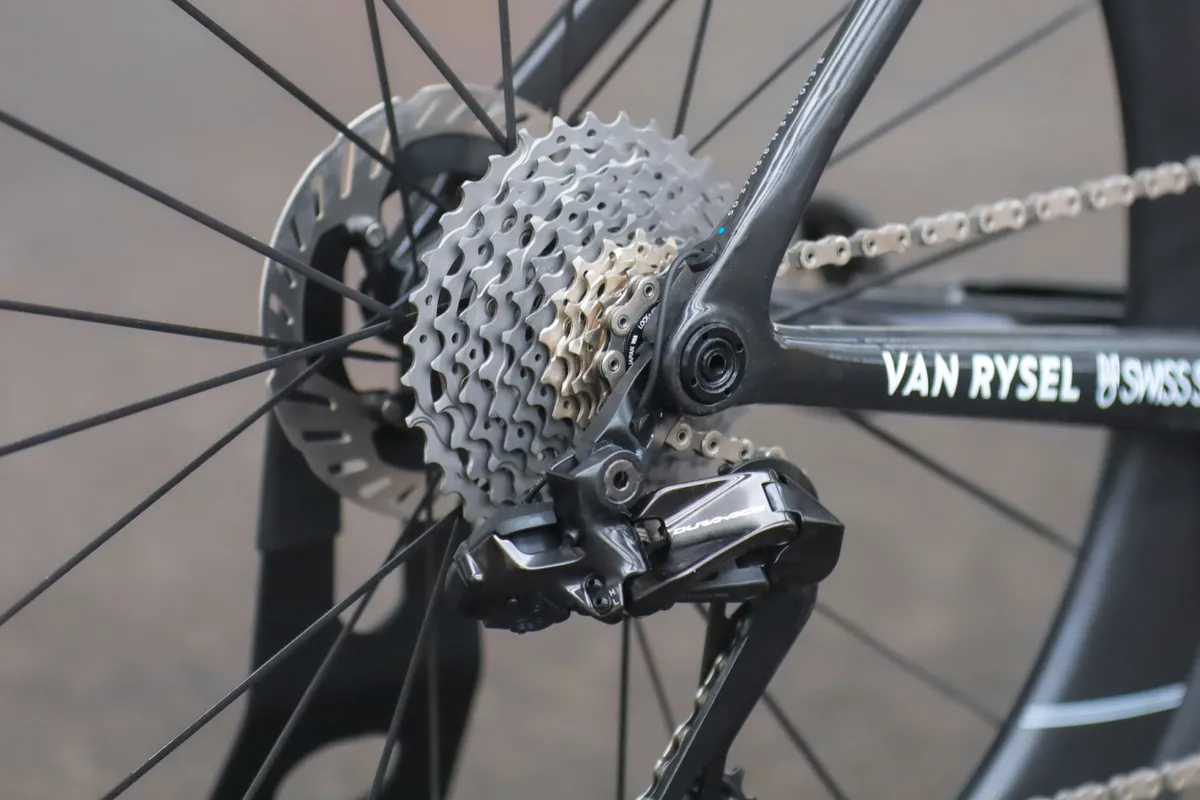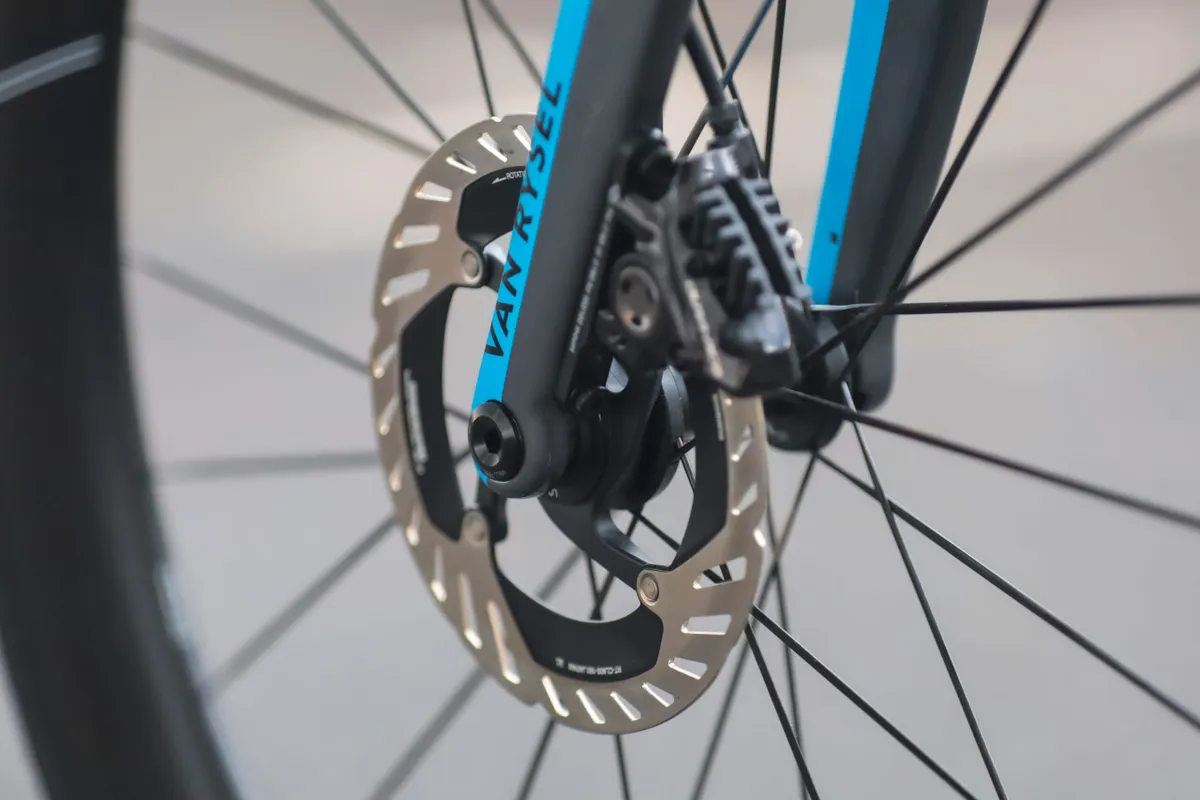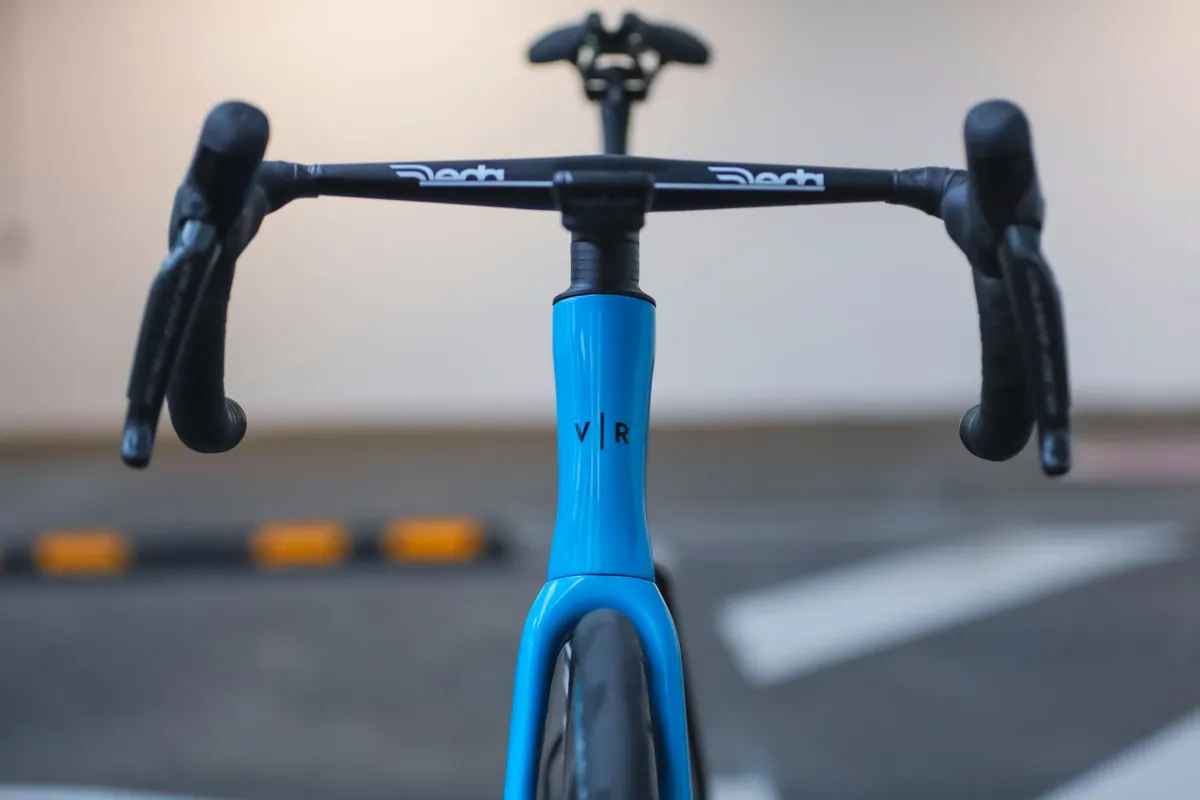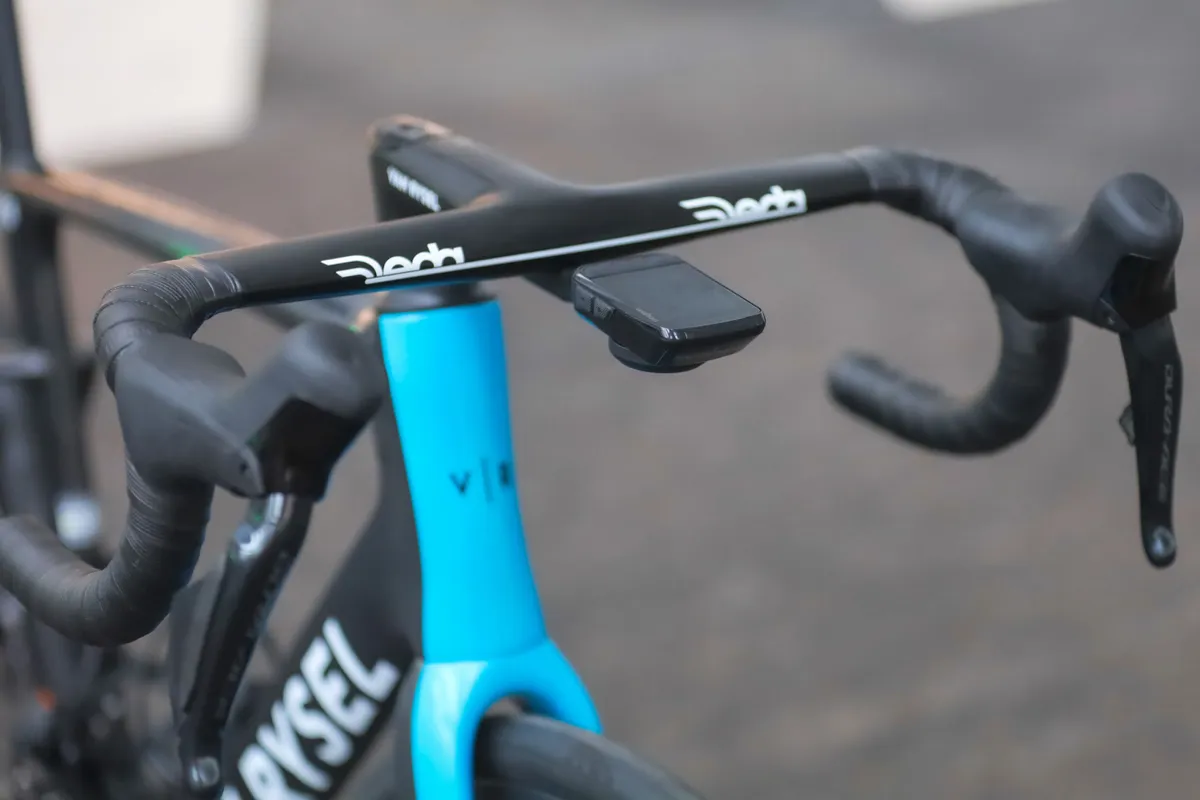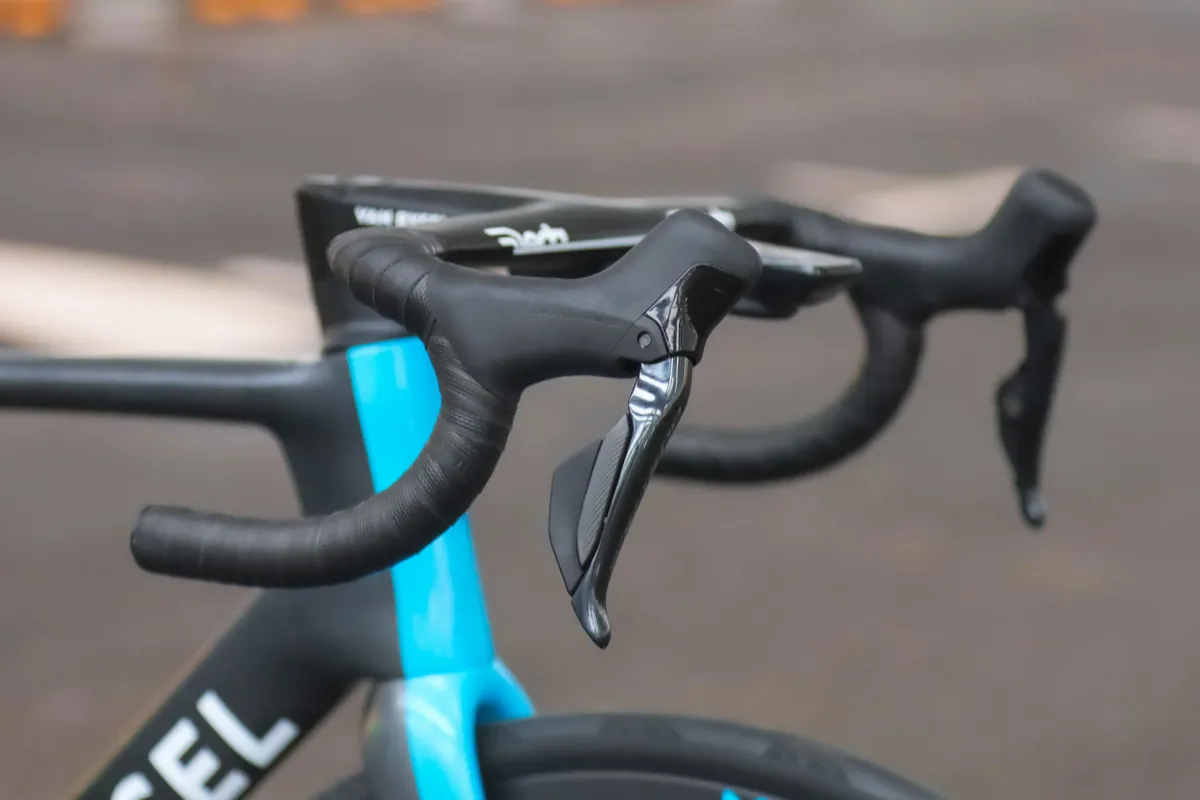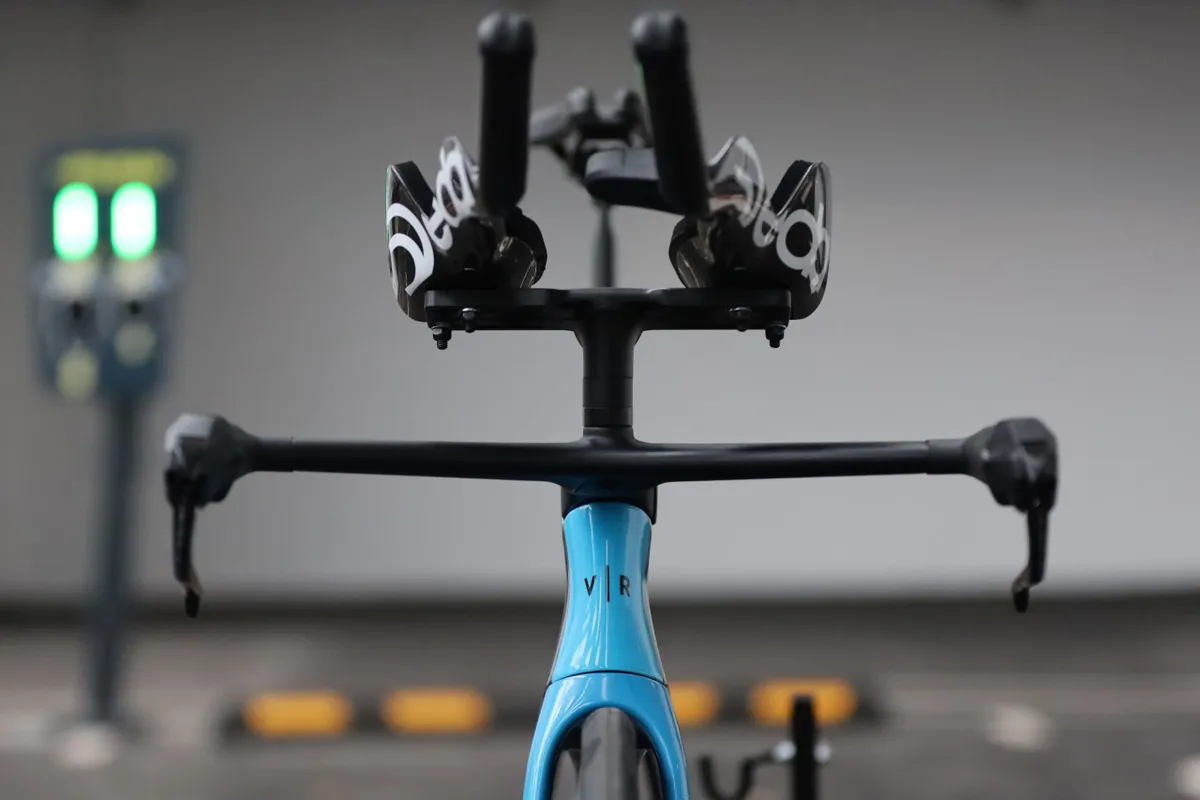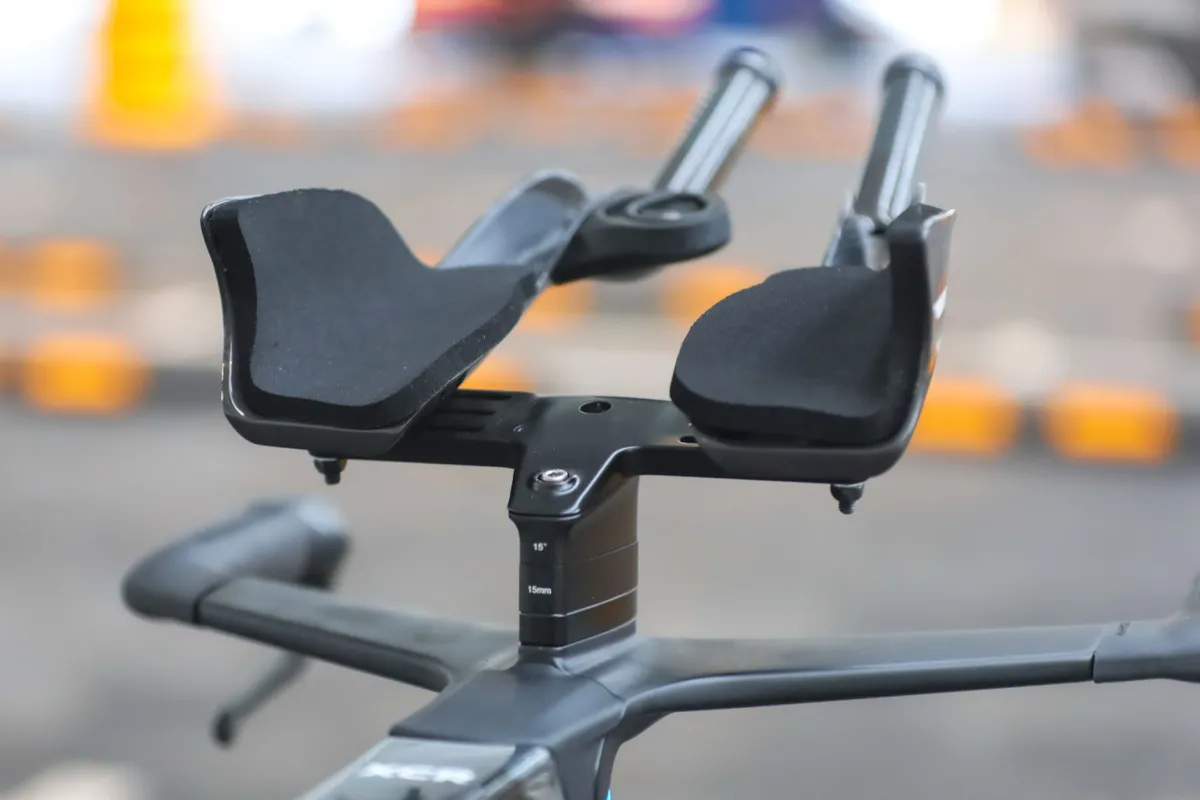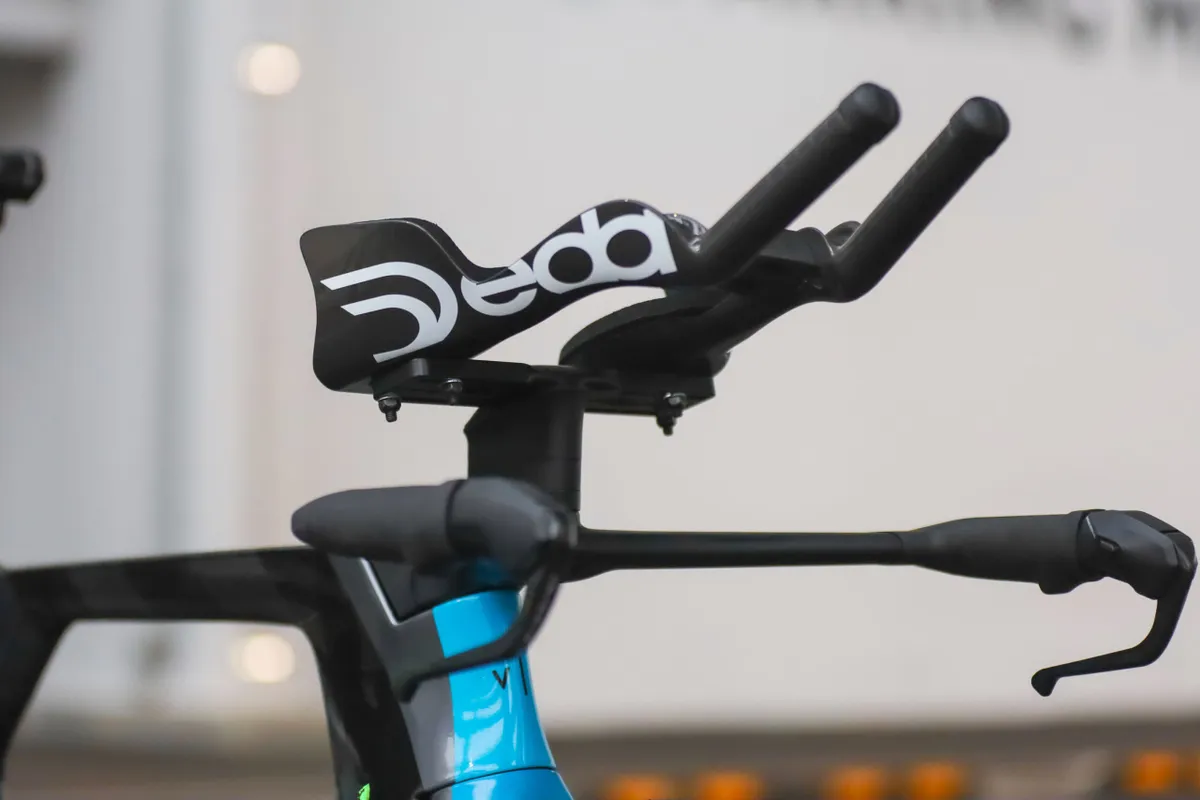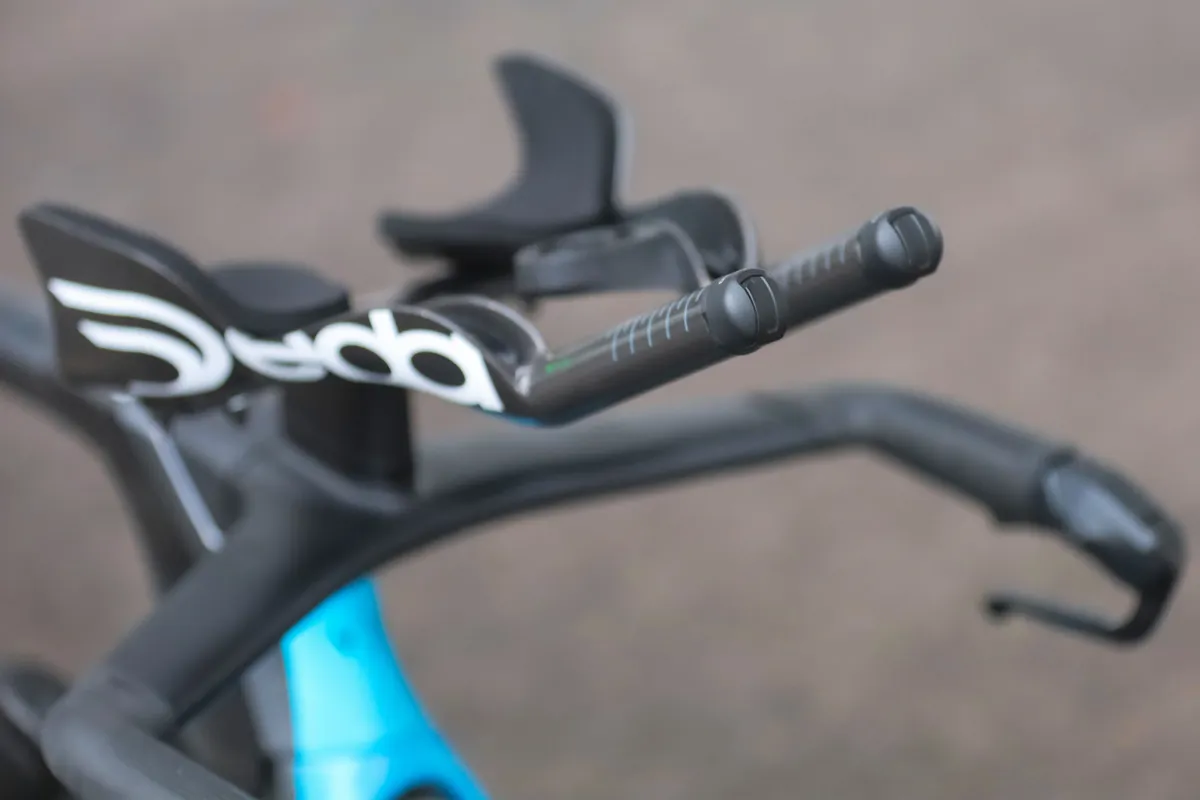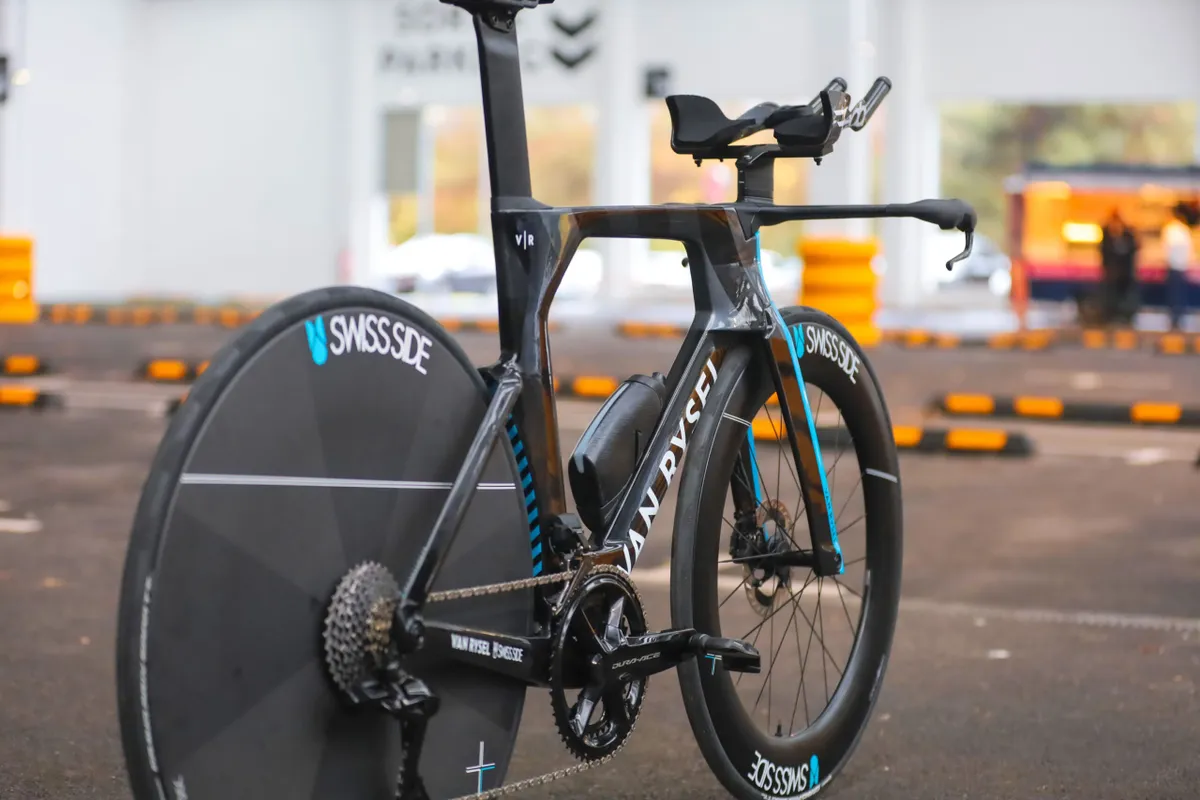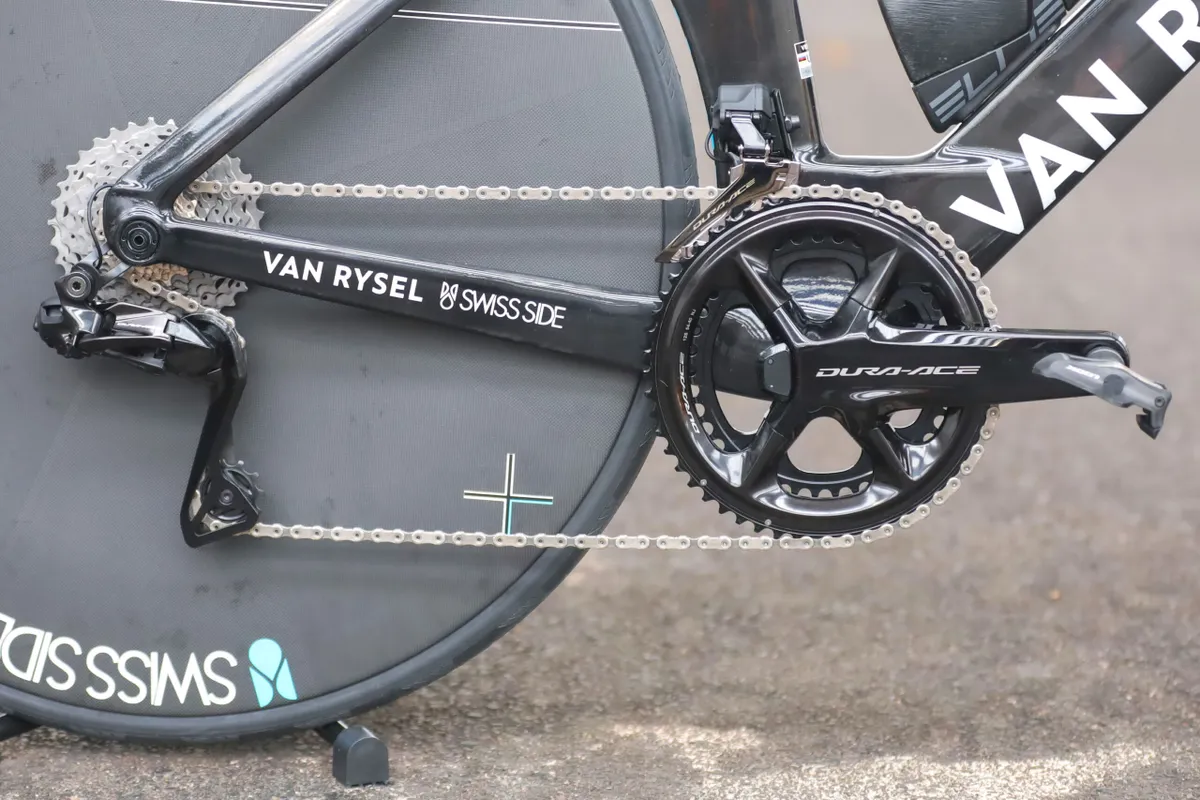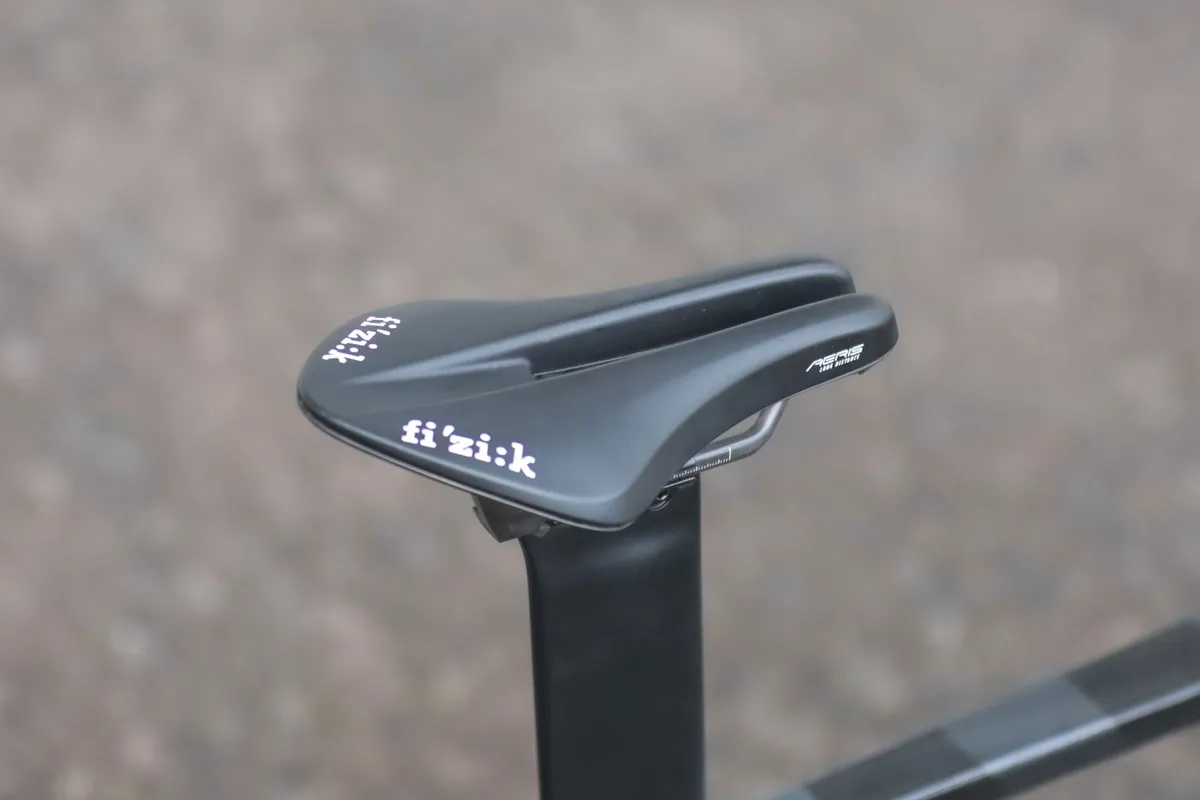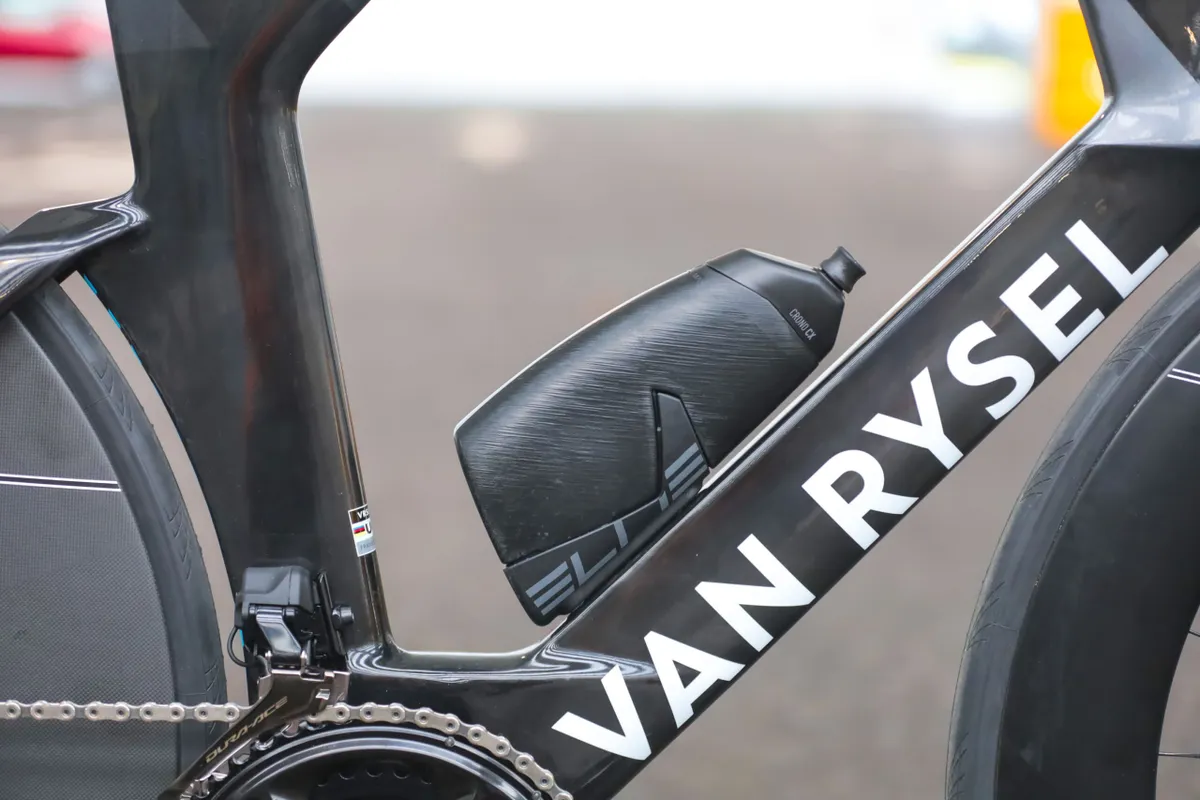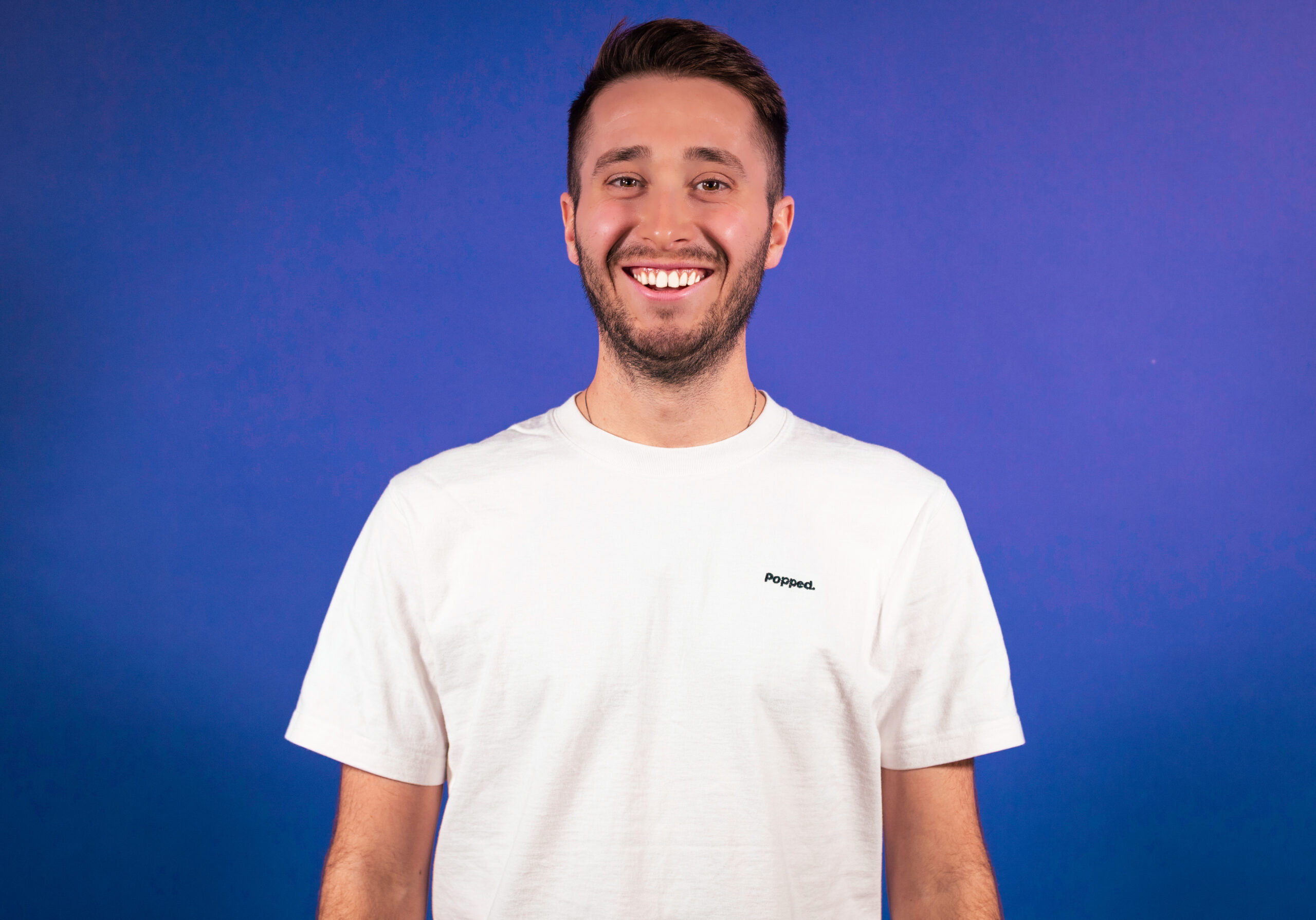Van Rysel is set to supply Decathlon AG2R La Mondiale with its new RCR Pro frameset, moving the team away from BMC.
First spotted at Sea Otter earlier this year, the RCR looks set to compete in the lightweight aero all-rounder space, alongside bikes such as the Specialized Tarmac SL8, Giant Propel Advanced and Ridley Falcn RS.
The team bikes also feature a change of groupset, with Shimano’s Dura-Ace Di2 R9200 replacing Campagnolo’s Super Record.
Look pedals, Swiss Side wheels, Continental tyres, and finishing kit from Deda and Fizik complete the bike.
The team has also unveiled its new time trial bike.
2006 wants its team back
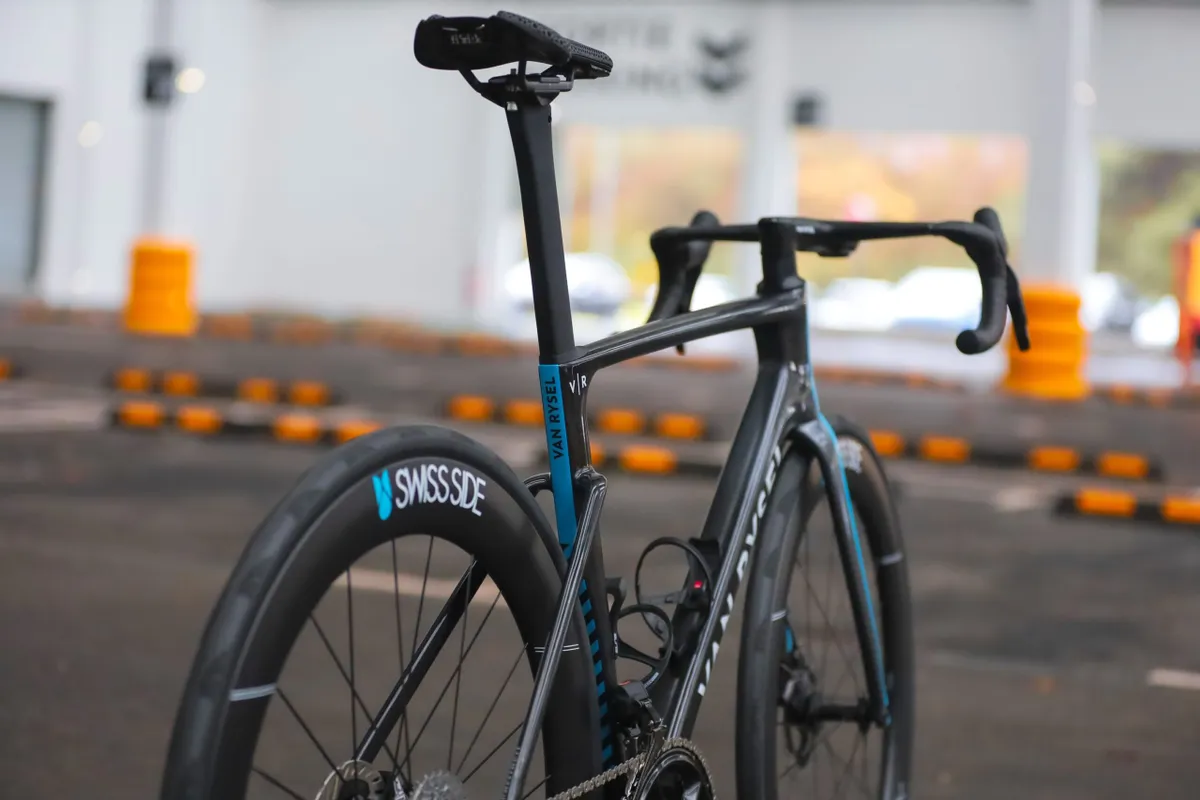
Van Rysel, along with B’Twin, is Decathlon’s road and gravel bike brand, with the former catering to the performance market.
After being absent from the WorldTour since 2006 (when it sponsored AG2R Prévoyance), Decathlon is back as a bike supplier, again to the AG2R setup, with a five-year deal that will see riders being consulted on future bike designs.
The RCR Pro frameset is an all-rounder that has drawn many comparisons to the Specialized Tarmac SL7, a bike that racked up a huge number of WorldTour wins.
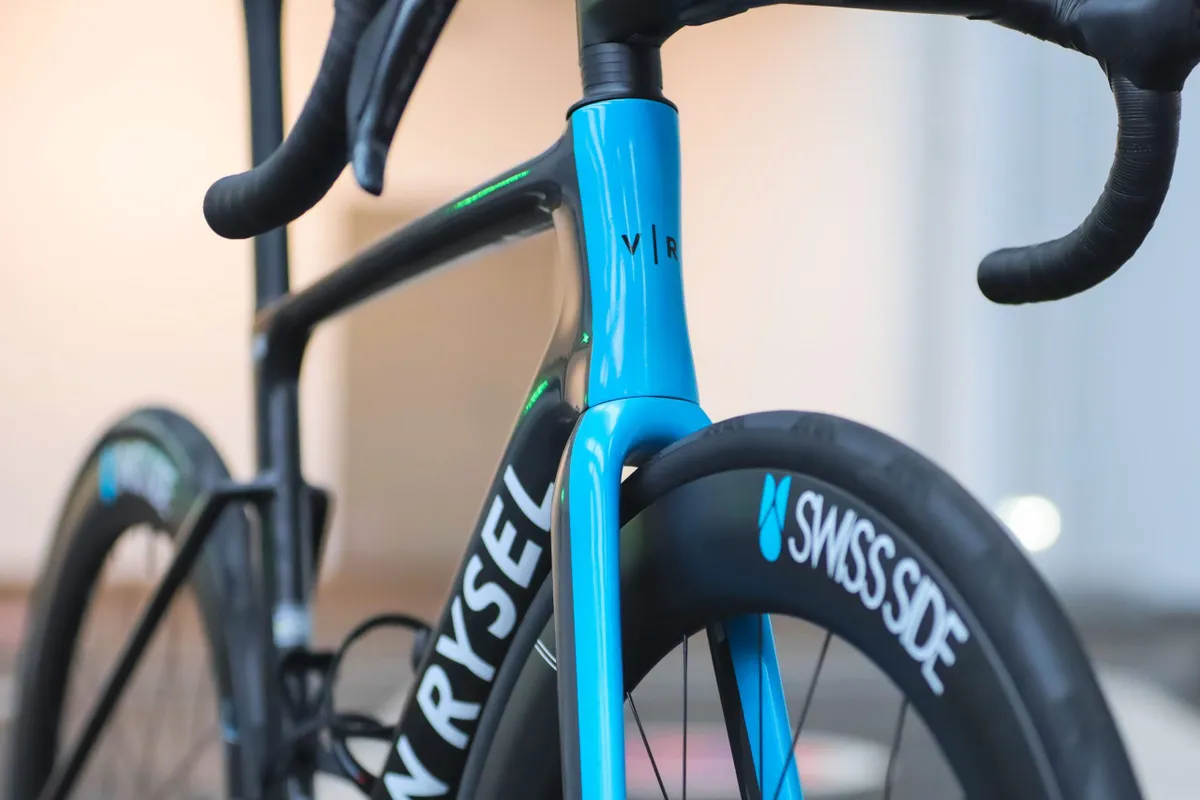
With aero-optimised tube shapes and a claimed weight of 6.82kg (size unconfirmed), we would expect many of the Decathlon AG2R riders to use this bike for the majority of the 2024 season.
However, Van Rysel has already revealed a dedicated aero road bike, called the FCR, is on its way. AG2R’s new sprinter, the 2021 Tour de France green jersey winner, Sam Bennett, may therefore switch between the two depending on a race’s terrain.
During the design phase of the RCR, Decathlon has leaned on the expertise of Onera, a French aerospace company that has its offices a short walk from Decathlon’s Lille HQ.
The front of the bike is fully integrated and features a subtle hourglass head tube with a truncated trailing edge.
This theme continues into the down tube with a profile that remains consistent until it reaches a hefty bottom bracket area.
Starting as a thinner, rounder tube, the seat tube flares backwards to hug the rear wheel before straightening to meet the dropped seatstays.
The frameset is finished with an aerodynamically optimised carbon seatpost, which mimics the shape of the seat tube for further efficiency gains.
Van Rysel Decathlon AG2R La Mondiale spec details
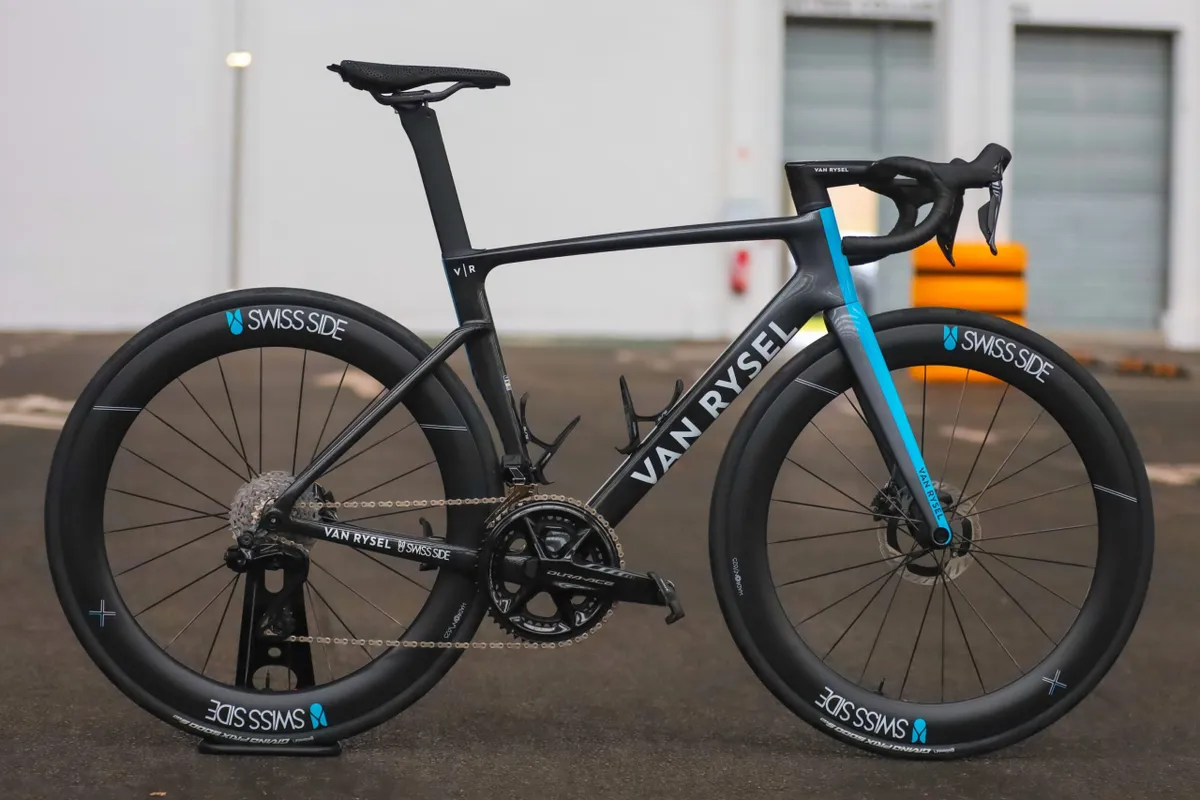
The Decathlon AG2R team will be using Shimano Dura-Ace Di2 R9200 groupsets with semi-wireless electronic shifting and hydraulic disc brakes.
The team doesn’t seem to be a fully sponsored Shimano outfit, however, as the Swiss Side wheels and Look Keo Blade Carbon pedals show.
Gearing consists of the Shimano pro-standard 54/40T chainrings, paired with an 11-30t or 11-34t cassette at the rear, depending on the terrain.
The team will also be using Shimano’s latest R9200-P dual-sided power meter crankset.
Swiss Side provides its range of Hadron carbon wheels. This bike uses the 625, though there are shallower 500 and deeper 800 wheelsets available too.
Fitted to these tubeless-ready wheels are a set of Continental’s highly rated GP5000 S TR tyres in a size 700x28c.
The rear end of the bike certainly has space for the team to go wider, but clearance at the fork appears slightly more limited.
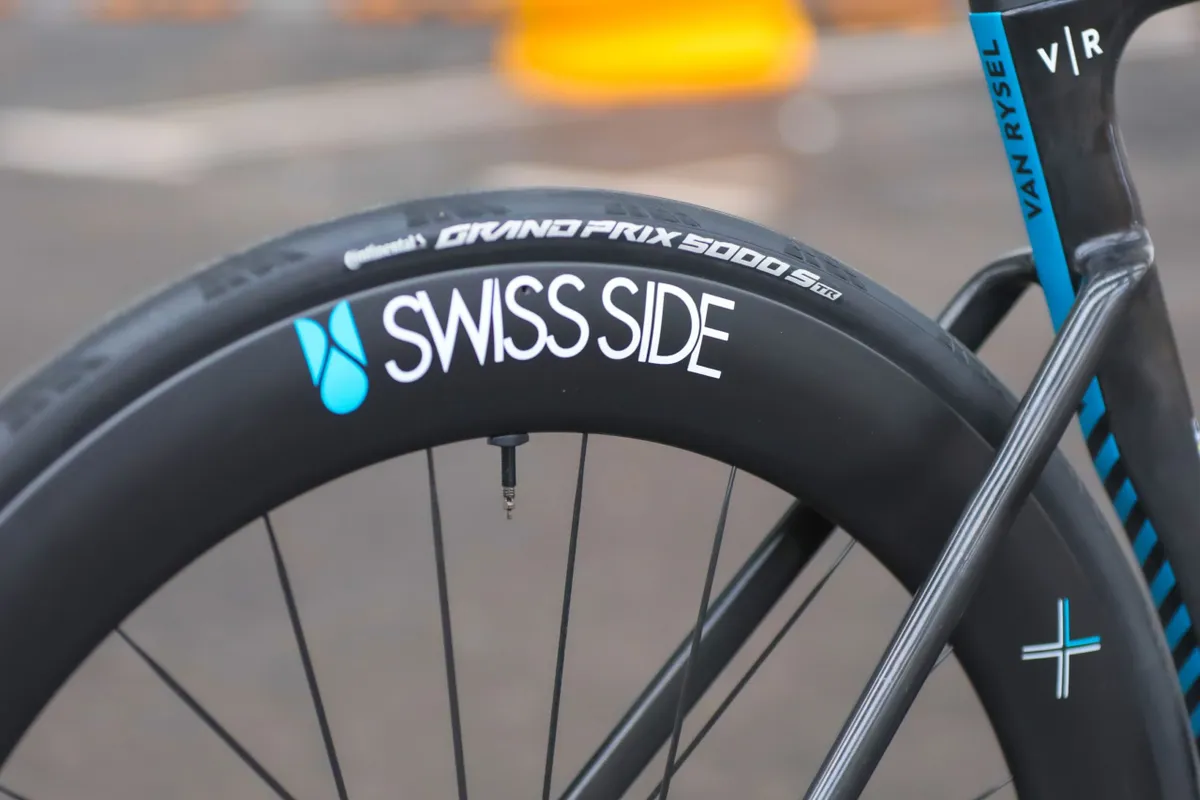
Eyeballing it, we suspect you could fit a 30c tyre at the front and a 32c at the rear, although we’ll have to wait for official confirmation to be sure.
Deda has designed a new aero cockpit for this bike, and though we’re yet to receive specific details, it shares some similarities with Deda's existing Alanera integrated cockpit.
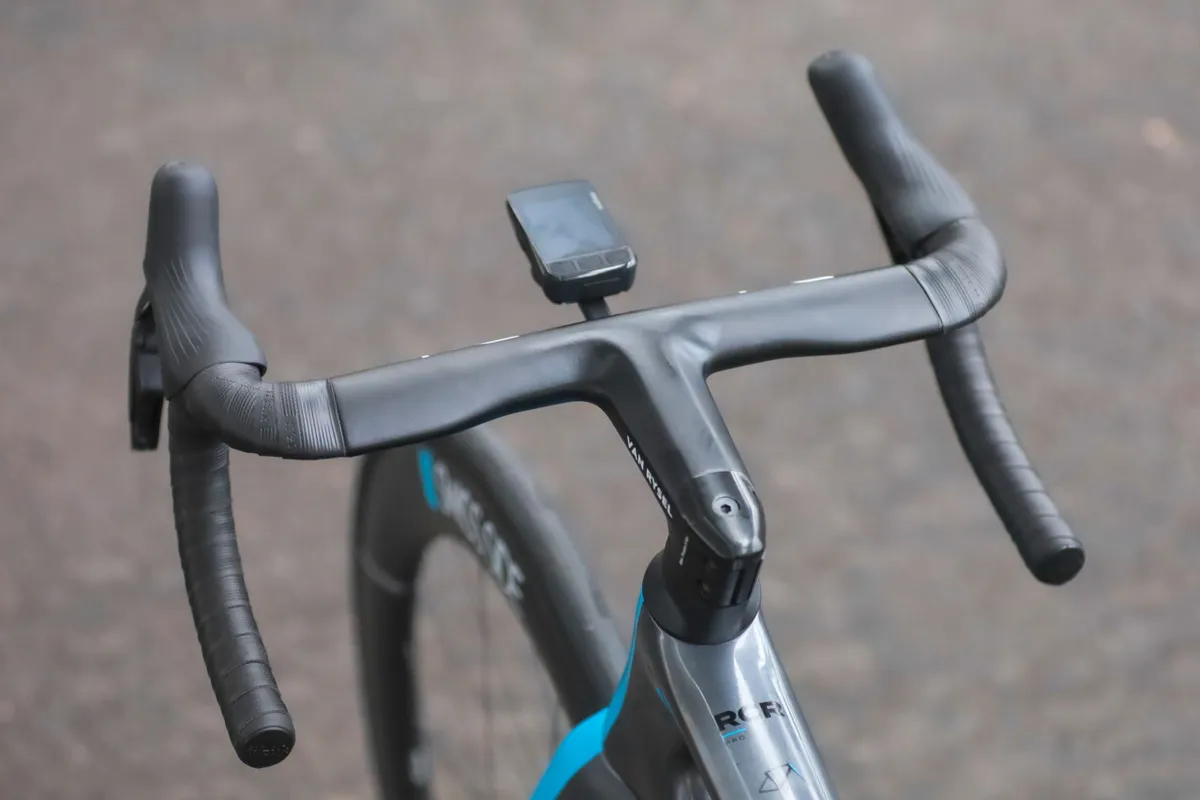
All cables and brake hoses are routed internally through the handlebar and upper headset bearing (fortunately, the team riders will have professional mechanics to handle tricky front-end serving).
As you’d expect, the tops are aerodynamically profiled to reduce drag, while the drops appear to use Deda’s popular RHM (Rapid Hand Movement) semi-compact drop shape.
In line with current trends, there’s also a slight flare from the hoods to the drops. In theory, this can offer a narrower, potentially more aerodynamic, hood position with wider drops to help improve control when sprinting or descending.
Van Rysel Decathlon AG2R La Mondiale XCR time trial bike
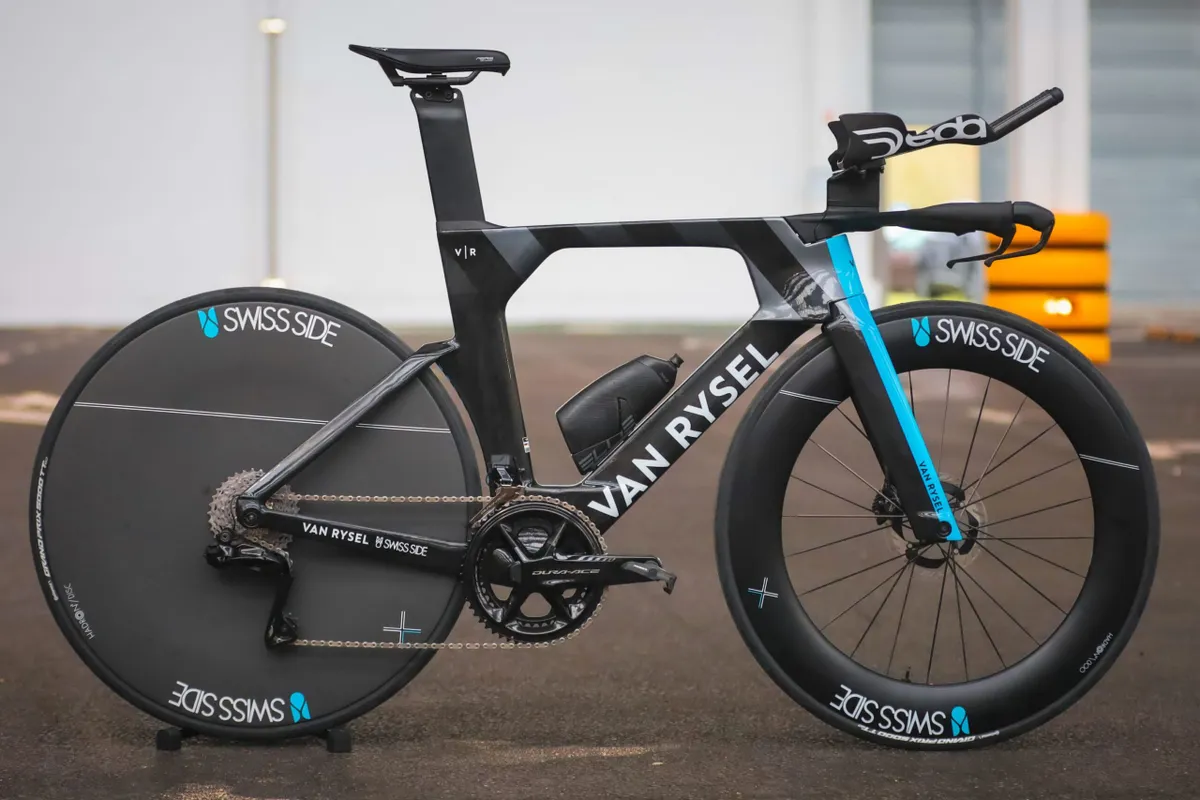
The team also took the chance to show off its new time trial bike, the Van Rysel XCR
Compared to the RCR, the XCR mostly eschews concerns about weight and focuses entirely on aerodynamic performance.
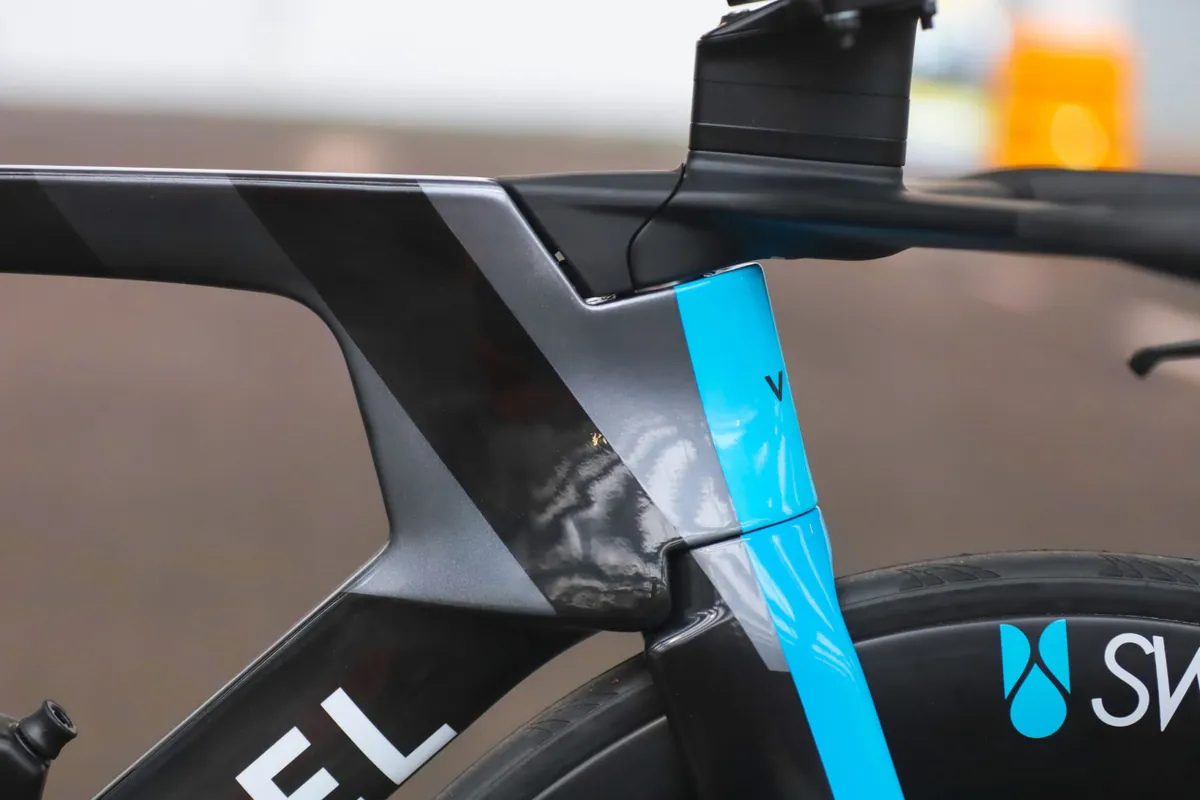
This results in large truncated aerofoil tube shapes through the frames, aggressively bladed fork legs, and a stem and base bar that integrate cleanly with the top tube, for further aero gains.
A deep aero seatpost, with a head that allows for effective seat tube angle adjustments, completes the frameset.
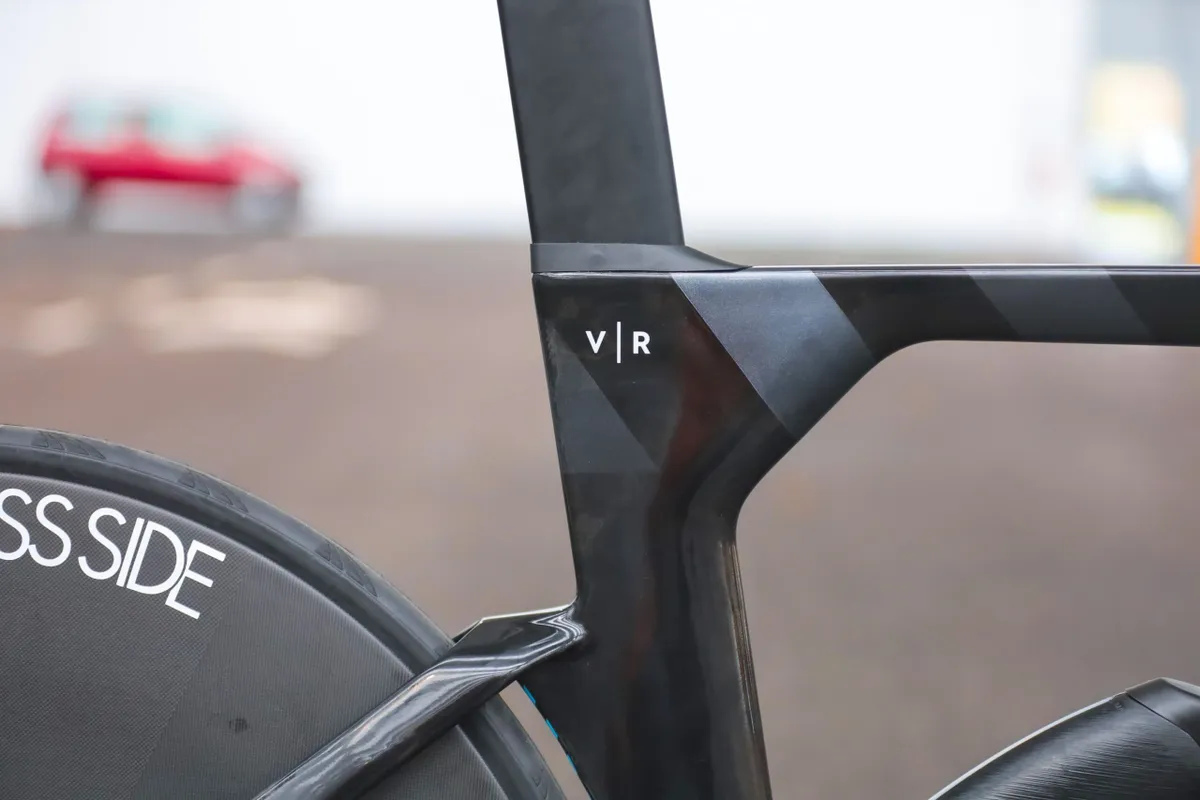
The base bar also uses a mono-riser extension system for the arm rests and aero bars, similar to that seen on the latest triathlon-specific Canyon Speedmax.
The frameset is built up using equipment from the same component suppliers as on the RCR, though there are a few spec changes to suit the differing demands of time trial racing.
Van Rysel’s XCR frameset comes fitted with Deda extensions and base bar. The arm cups are integrated into the aero extensions, and are sculpted to support the rider’s forearms, both from below and laterally.
The thinking is this helps a rider ‘lock-in’ to their optimum position more effectively.
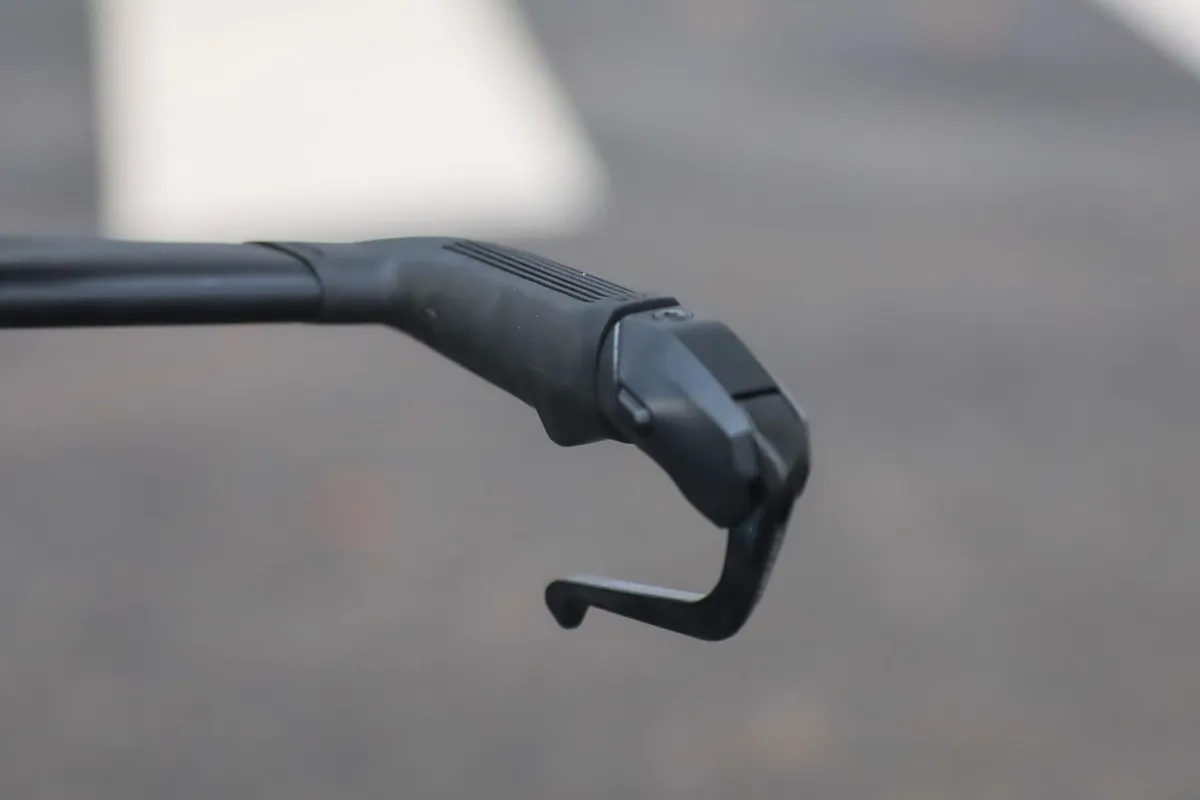
Built-in silicone hand grips on the base bar negate the use of handlebar tape or skateboard-style grip tape.
The wheels are again supplied by Swiss Side, with the Hadron Disc at the rear and a Hadron 800 up-front. This is Swiss Side’s most aerodynamic wheel combination, though of course it sacrifices something in terms of weight.
These are shod in Continental GP5000 TT TR tyres, said to be the German brand’s “fastest-ever” road bike tyre.

